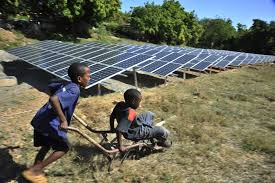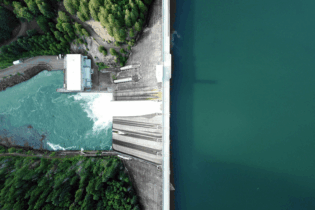In June 2018, Bouake, the second largest city of Cote d’Ivoire, suffered it’s first-ever shutdown of domestic water supply.
The country’s dammed lake, which supplies 70% of the city’s water supply completely ran dry and according to many experts, this was another consequence of climate change. The drought caused extraordinary hardships for the people of Cote d’Ivoire who battled to acquire clean drinking water. The story of Bouake is one of many currently unfolding in Africa, where climate change has consequences of a magnitude never-seen-before globally. To battle climate change, keep up with their pace of development and ensure food security, some countries, like Nigeria, Uganda and Zimbabwe, have resorted to solar energy as a solution.A growing body of research from some of the world’s most renowned energy experts and researchers, has demonstrated that no other energy source can provide power and have an impact as sustainably, reliably, and efficiently as solar.
In an effort to highlight the life-changing potential of solar power, Solarplaza recently published an extensive report focusing on a small number of impact cases across the three main areas of solar development in Africa: utility-scale, mini-grid/microgrid and off-grid. According to the report entitled: Africa Solar Impact Cases, they are not all rosy success stories and challenges remain palpable. “However, they are able to show that solar energy’s potential to positively impact lives for the long term is greater than ever,” the author notes.






